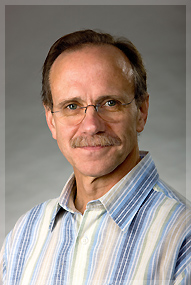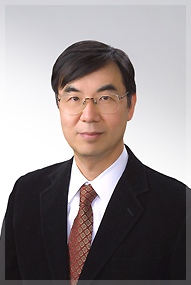The 2008 Keio Medical Science Prize Awardees
Fred H. Gage, Ph.D.

Adler Professor, Laboratory of Genetics, The Salk Institute for Biological Studies, U.S.A.
Reason for Selection
For the Discovery of Physiological Roles of Adult Neurogenesis in Mammalian Brain
For more than a century, it has been firmly believed that the adult mammalian brain does not create new neuronal cells and could not repair itself. Dr. Fred H. Gage and his colleagues showed that neurogenesis, the creation of new brain cells, actually occurs particularly in hippocampus, the learning center of adult mammalian brain. Small populations of immature nerve cells are found in the adult brain and these immature cells are capable of producing precursor cells with the ability to give rise to a variety of cell types including neurons and glia. He has also demonstrated that environmental enrichment and physical exercise can increase neurogenesis and enhance functional integration of newly born neurons into neuronal circuits in hippocampal dentate gyrus of adult brain. Dr. Gagefs pioneering research provided new details about the nature of adult neurogenesis and his discovery has challenged the old doctrine according to which the central nervous system is resistant to regeneration. The implications go even further offering new insight into the mechanism that triggers clinical depression and suggesting a more focused approach to understanding the mental illness. Dr. Gage opens up new directions of research as well as development of therapeutic strategy for trauma and diseases of the central nervous system.
Background
- 9/74-6/76
- NIMH Predoctoral Fellow, The Johns Hopkins University
- 9/76-6/80
- Assistant/Associate Professor, Texas Christian University
- 6/81-6/85
- Associate Professor, Dept. of Histology, University of Lund, Lund, Sweden
- 6/85-6/88
- Associate Professor, Dept. of Neurosciences,
University of California, San Diego - 6/88-
- Professor, Dept. of Neurosciences, University of California,
San Diego - 6/95-
- Professor, Laboratory of Genetics, The Salk Institute for Biological Studies, La Jolla, CA
- (as of October 2008)
Shimon Sakaguchi, M.D., Ph.D.

Professor, Department of Experimental Pathology, Institute for Frontier Medical Sciences, Kyoto University, Japan
Website
* Website (Institute for Frontier Medical Sciences, Kyoto University)
Reason for Selection
For the Discovery of Regulatory T cells and Their Roles in Immunological Diseases
Understanding how the unresponsiveness of lymphocytes to self-constituents (i.e., immunological self-tolerance) is maintained has been a key issue in immunology and medicine. In the 1980s, Dr. Shimon Sakaguchi showed that the depletion of a particular subpopulation of T cells was able to produce autoimmune disease in otherwise normal animals. This study led him to discover regulatory T cells (Tregs), which are present in normal individuals and are specialized for immune suppression and tolerance. Since his discovery of Tregs, Dr. Sakaguchi has greatly contributed to our understanding of the molecular basis of the development and function of Tregs and also their roles in controlling a variety of physiological and pathological immune responses, including autoimmune disease, allergy, transplantation tolerance, and tumor immunity. Active research on Tregs is now underway throughout the world in an attempt to develop novel ways of immune suppression and intervention.
Background
- 1976-1978
- Resident, Department of Pathology,
Kyoto University Medical School and Hospital - 1978-1981
- Visiting Investigator, Laboratory of Pathology,
Aichi Cancer Center Research Institute - 1981-1983
- Senior Research Fellow, Institute for Immunology,
Kyoto University Medical School - 1981-1983
- Joint Appointment at the Blood Transfusion Service,
Kyoto University Hospital - 1983-1985
- Postdoctoral Fellow, Department of Immunology and
Infectious Diseases, The Johns Hopkins Medical Institutions - 1986-1987
- Postdoctoral Fellow, Department of Biophysics,
The Johns Hopkins Medical Institutions - 1987-1989
- Visiting Scientist, Division of Immunology and Rheumatology,
Stanford University Medical Center - 1989-1991
- Assistant Professor, Department of Immunology,
Scripps Research Institute - 1992-1994
- Investigator, Science and Technology Agency of Japan
- 1994-1999
- Head, Department of Immunopathology, Tokyo Metropolitan,
Institute of Gerontology - 1999-2007
- Professor and Chair, Department of Experimental Pathology,
Institute for Frontier Medical Sciences, Kyoto University - 2007-present
- Director and Professor, Institute for Frontier Medical Sciences,
Kyoto University - 2007-present
- Adjunct Professor, WPI Immunology Frontier Research Center,
Osaka University
